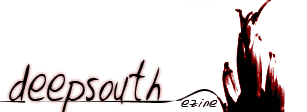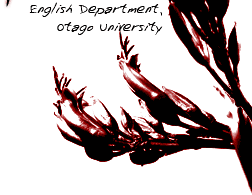Conclusion
The crisis in the African continent is evincible in almost every sphere of human endeavour - politically, economically, socially, historically and culturally. Ambrose Kom passionately laments over the catatonic state of Africa’s political arrangement:
The multidimensional failure of our institutions: Phantom states in search of an undiscoverable Democracy; an extrovert economic which is almost entirely controlled by corrupt networks; a disjointed society whose essential services – schools, public health, personal safety in particular – seem Irremediably compromised; young people who are crippled, left to themselves
in a world without any ethics (3).
This abysmal portrait of the execrable political state of contemporary Africa is by no means contentious. A critical appraisal of recent African poetry reveals an even more horrid picture. Recent African poets have displayed acute dismay at the problems of post-independence African states and are committed to artistic strategies in the quest for the resolution of the dire economic crisis that has reduced Africa, which Bill Ashcrof subtly puts as the “conflict between a dominant discourse and a local reality” (1). Recent African poets have not only reconstructed the nauseating social realities of their environment but have often proffered some form of ergonomic designs to palliate the appalling socio-political realities of Africa. The images in their poetry are rife with biting ironies. Through these ironies they dialectically interrogate the political idiocy of government.
Poetry for these poets is not just a mere package or assemblage of social facts in artistic form but a documentation of the diffused pains of the people and a blue print for containing Africa’s governmental misrule. The representation of government in the poetic vocation of these poets is demonic, their sense of criminality portrayed with artistic clarity. For African rulers, production or responsibility is socialized but distribution is privatized, hence while the ruled croon over their state of economic debility, the depraved rulers are ensconced in egocentricism. Success for them is measured against the heights of the skyscrapers they have erected and the impregnability of their fortresses and security zones. As the political temper of Africa continues to change the gulf between the ruled and the rulers continues to be unbridgeable. However, African poets continue to be very enterprising, proving that their wit, mythopoesis and, above all, their deep sense of commitment to the African predicament are of monumental importance.
WORKS CITED
Aiyejina, Funso. “Recent Nigerian Poetry: The Alter- Native Tradition”. Perspective on Nigerian Literature Volume 1. Ed. Yemi Ogunbiyi: Lagos: The Guardian Books Limited. 1988: 112-128.
“And so it came to pass” A selection of African Poetry: New Edition. Eds. K.E Senanu and T. Vincent England: Longman, 1988.
Angira, Jared. Cascades. London: Heinemann, 1979.
Ashcroft, Bill. “Legitimate Post-Colonial Knowledge.” Mots Pluriels. No. 14 – June, 2000. http://www.arts.uwa.educ.au/motspluriels/mp:1400akfr.html.
Bodunde, Charles: “Poetry in the Newspaper: The Younger Poets in Nigeria and the search for Artistic Medium.” Okike 34, (October, 1996) 76 – 86.
Chency-Coker, Syl. The Graveyard Also Has Teeth with Concerto for an Exile. London: Heinemann, 1980.
Chimumbo, Steve. “Of Promises and Prophecy.” The New African Poetry: An Anthropology. Eds Tanure, Ojaide and Tijan, Sallah. London: Lynne Reinner Publishers, 1999.
Chipasula, Frank. O Earth, Wait for Me. Bramfontein: Raven, 1984.
Ezenwa-Ohaeto. “Funso Aiyejina and Tanure Ojaide”. Perspective on Nigerian Literature. Vol. Two. Ed Yemi Ogunbiyi. Lagos: The Guardian Books Limited. 1988: 321 – 326.
Fatoba, Femi. Petals of Thought. London: New Beacon, 1984.
Izevbaye, Dan. “Endless Beginnings: Motifs of creation and creativity in Nigerian Literature”, New Englishes: A West African Perspective. Eds. Ayo Banjo Ayo Bamgbose and Andrew Thomas. Ibadan: The British Council. 1995: 309-324.
____. “Politics and Poetry in Nigeria”. Presence Africaine 78. 1971: 143-188.
Jeyifo, Biodun(1988)”Niyi Osunde”. Perspectives on Nigeria literature. Ed. Yemi Ogunbiyi, Lagos: Gurdian book Nigeria Ltd. Vol. Two 314-320.
Jone E, D (ed). African Literature Today. 20. 1996: 1-2
Kom, Ambrose. “Knowledge and Legitimation” Mots Pluriels. No. 14 – June, 2000. Htt://www/arts/uwa.edu.au/motspmp1400akfr.html.
Kubayanda, J. B. (1990). “Dictatorship, Oppression and the New Realism.” Research in African Literatures 21 2.
Lazaru, Neil (1986) “Great Expectations and After: the politics of Postcolonialism in Africa Fiction.” Social Text 13 – 14, 49 – 63.
Ofeimun, Odia. (1980) The Poet Lied. London Longman.
Ojaide Tanure (1996) Poetic Imagination in Black Africa. Durham: Carolina Academic Press.
___. The Eagle’s Vision. Detroit: Lotus Press, 1987.
___. The Fate of Vultures. Lagos: Malthouse,1990.
Okunoye, Oyeniyi. “Exploration in new Nigeria poetry” Writing the Homeland: The Poetry and Politics of Tanure Ojaide. ed. Onookome Okome, Bayreuth: Echard Breitinger. 2002:19 – 30.
Okuyade, Ogaga. “ The Changing Face of History and Recent Africa Poetry” Journal of Languages, College of Education. Warri. ed. T. O. Shobomehin, 2005.
Olafioye, Tayo. The Parliament of Idiots. Ibadan: Kraftgriots, 2002.
Osundare, Niyi. Songs of the Market place. Ibadan: New Horn Press, 1983.
___. “African Literature Now: Standards, Texts and Canons” Glendora Review. 1,4, 1996: 25 – 31.
Young, Robert. Post Colonialism: A very short Introduction. New York: Oxford University Press, 2003.
* Ogaga Okuyade is a Doctorial Candidate at the Department of English, University of Ibadan, Nigeria.
(c) Ogaga Okuyage. All rights reserved.
page 1 2 3 4 5 6

